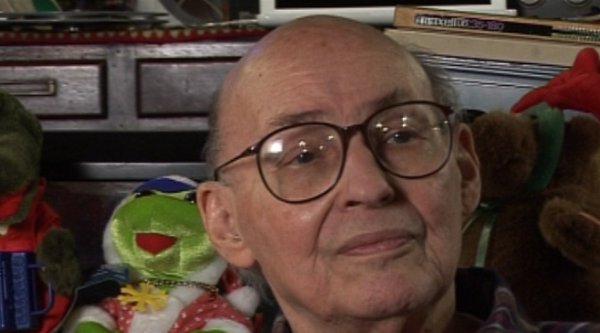NEXT STORY

Seymour Papert's little scientists
RELATED STORIES

NEXT STORY

Seymour Papert's little scientists
RELATED STORIES


|
Views | Duration | |
|---|---|---|---|
| 81. The beginning of cognitive psychology | 2473 | 01:17 | |
| 82. The strange history of neuroscience | 2517 | 03:34 | |
| 83. Chomsky's theories of language were irrelevant | 1 | 2923 | 02:28 |
| 84. Losing students to lucrative careers | 2224 | 02:23 | |
| 85. Psychology should not be like physics | 2063 | 04:07 | |
| 86. Seymour Papert goes in a different direction | 1870 | 01:23 | |
| 87. Seymour Papert's little scientists | 1809 | 02:23 | |
| 88. Representations of the mind, knowledge and thinking | 1837 | 01:51 | |
| 89. Producing The Society of Mind | 1808 | 03:13 | |
| 90. The Emotion Machine | 1742 | 01:43 |


Well, what Papert and I did was say 'Well yes, it’s going to get pretty big and then we’re going to have to make administrative theories of, how do other levels of the mind manage all those resources so they don’t go crazy and one of them doesn’t dominate the others and how is all this stuff regulated?' Well I kept working on that and then at some point in the early 1970s, Papert began to think well, we’ve got to verify these theories and see if they work, and so instead of working together all the time now, we were being more separate. And he started groups of training people to work with children and see how... how their learning actually worked and trying to give them new kinds of tools... especially the first... this was the period when computers became cheap enough that, for the first time, children could be given access to them and Papert pioneered that area and discovered that fifth graders could... were incredibly productive and original and in a few hours many of them became very good at building complicated programs and making machines do really interesting things.
Marvin Minsky (1927-2016) was one of the pioneers of the field of Artificial Intelligence, founding the MIT AI lab in 1970. He also made many contributions to the fields of mathematics, cognitive psychology, robotics, optics and computational linguistics. Since the 1950s, he had been attempting to define and explain human cognition, the ideas of which can be found in his two books, The Emotion Machine and The Society of Mind. His many inventions include the first confocal scanning microscope, the first neural network simulator (SNARC) and the first LOGO 'turtle'.
Title: Seymour Papert goes in a different direction
Listeners: Christopher Sykes
Christopher Sykes is a London-based television producer and director who has made a number of documentary films for BBC TV, Channel 4 and PBS.
Tags: 1970s, Seymour Papert
Duration: 1 minute, 24 seconds
Date story recorded: 29-31 Jan 2011
Date story went live: 12 May 2011